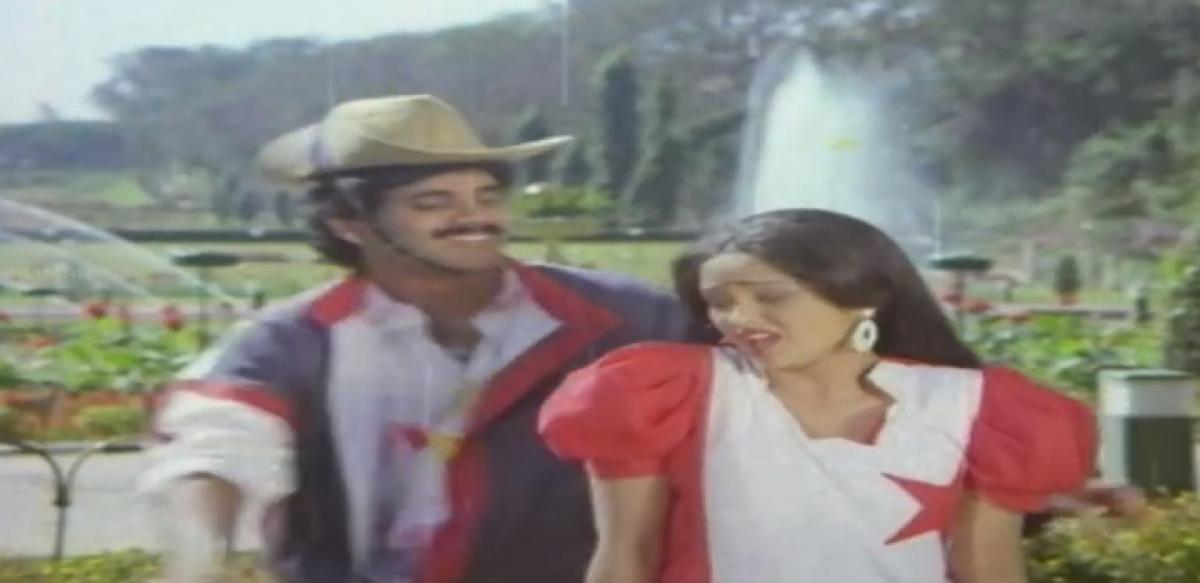Live
- GMR Airports Unveils AI-Powered Digital Twin Platform to Transform Airport Operations
- India poised to become leading maritime player: PM Modi
- Top Causes of Kidney Stones and How to Recognize Silent Symptoms
- India’s renewable energy capacity logs 14.2 pc growth at 213.7 GW
- Winter Session of Odisha Assembly adjourned sine die
- Biden calls Trump's tariff approach 'major mistake'
- After Drama Over Eknath Shinde’s Chief Minister Race, Maharashtra Cabinet Formation Faces New Tensions
- Egyptian FM, Blinken discuss recent developments in Syria
- Iran's supreme leader says Syria's developments result of US-Israeli 'plot'
- Elon Musk to Purchase $100 Million Luxury Mansion Next to Donald Trump's Mar-a-Lago, Report Reveals
Just In

After a rousing start to his career as a mass hero in 1986, with the remake of the Hindi film also titled ‘Hero’, Nagarjuna recorded his next major hit with ‘Majnu’ in the following year; the first showcasing of his yet-to-emerge ‘lady killer’ status. Having spent three-decade tenure in the Telugu film industry, even though his film list is still to touch the century mark, Nag, as he is popularly
After a rousing start to his career as a mass hero in 1986, with the remake of the Hindi film also titled ‘Hero’, Nagarjuna recorded his next major hit with ‘Majnu’ in the following year; the first showcasing of his yet-to-emerge ‘lady killer’ status. Having spent three-decade tenure in the Telugu film industry, even though his film list is still to touch the century mark, Nag, as he is popularly referred to, has maintained his slot in the top ranks of the industry, over the years.
Laxmikant Pyarelal, the top musical pair of Hindi cinema was introduced to Telugu with this venture by noted director Dasari, who also wrote the lyrics of all the hit songs, the film contained. In what can be considered an enduring trend in southern cinema, songs have often lapsed into using words and phrases from other languages, including English.
This song, in fact, starts with the only sentence that lovers have used to profess their love with each other- I Love You - sung with that typical, sing-song, accented tone of SPB. Refreshingly, keeping in tune with the films made in this part of the country, the songs then had a ‘Make in India’ feel, having largely been shot in breathtaking Indian locales and tourist spots. This one too maintains the tradition, so to speak.
After the hero declares his intention, the chorus repeats the sentence and the lead pair is shown in a wide-angle shot with fountains and greenery in the backdrop. The white pant, coloured shirt/ T-shirt routine is also religiously observed as costumes for the hero, while the heroine is fully covered by 21st century standards. Obviously, calisthenics pass off for dance moves, one more must-have in Telugu cinema of that era.
Granting a liberal licence to the typicalities of that period, the song takes off with some comic, half-crazy postures and moves of the hero spelling out letter by letter, his undying passion, in English. Taking off from here, the duet singers, continuing with the lyrics, see the hero do impossible stuff to confirm his romantic intentions like climb a mountain etc, all the while the Telugu twang to the tone unmistakably evident.
The musical duo, known for their trademark dependence on the tabla-violin combo, as also an inevitable bog down to the song after it runs its first three minutes, stick to their core strengths. The hero-heroine prance around and the song too keeps pace, dipping and raising the crescendo, as it wills. ‘Premaku ledhu haddhulu’ repeat the love birds, which is what the theme of love stands for.
The cinematographer, P Sarath Babu, keeps the proceedings, less narcissistic by employing long and mid-profile shots, allowing the viewers to take in the lush green ambience, the well-maintained lawn and the gushy fountains. The camera moves across a riot of colours to maintain the mood and makes it a good watch. Incidentally, this film did not set the box-office on fire when it was remade in Tamil with Prabhu in the lead, titled ‘Anand’.

© 2024 Hyderabad Media House Limited/The Hans India. All rights reserved. Powered by hocalwire.com







